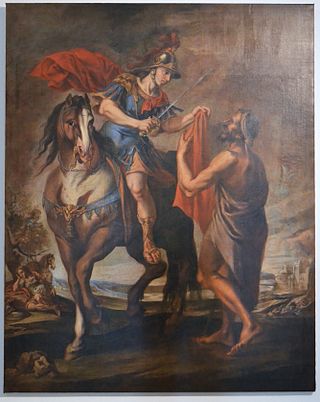Related Research Articles
Bart is a masculine given name, usually a diminutive of Bartholomew, but sometimes of Barton, Bartolomeo, etc.
White is a surname either of English or of Scottish and Irish origin, the latter being an anglicisation of the Scottish Gaelic MacGillebhàin, "Son of the fair gillie" and the Irish "Mac Faoitigh" or "de Faoite". It is the seventeenth most common surname in England. In the 1990 United States Census, "White" ranked fourteenth among all reported surnames in frequency, accounting for 0.28% of the population. By 2000, White had fallen to position 20 in the United States and 22nd position by 2014
Nick is a masculine given name. It is also often encountered as a short form (hypocorism) of the given names Nicholas, Nicola, Nicolas, Nikola, Nicolai or Nicodemus. It may refer to:
Edwards is a patronymic surname of English origin, meaning "son of Edward". Edwards is the 14th most common surname in Wales and 21st most common in England. Within the United States, it was ranked as the 49th-most common surname as surveyed in 1990, falling to 51st in 2014.

Paul is a common Latin masculine given name in countries and ethnicities with a Christian heritage and, beyond Europe, in Christian religious communities throughout the world. Paul – or its variations – can be a given name or surname.
Derek is a masculine given name. It is the English language short form of Diederik, the Low Franconian form of the name Theodoric. Theodoric is an old Germanic name with an original meaning of "people-ruler".
Johnston is in most cases a habitational surname derived from several places in Scotland. Historically, the surname has been most common throughout Scotland and Ireland.
Leonard or Leo is a common English masculine given name and a surname.
Grant is an English, Scottish, and French surname derived from the French graund meaning 'tall' or 'large'. It was originally a nickname given to those with remarkable size.

Martin may either be a given name or surname. In Scotland, Martin or McMartin is a common surname of Scottish Gaelic origin. Martin is, however, more common as a masculine given name in many languages and cultures. It comes from the Latin name Martinus, which is a late derived form of the name of the Roman god Mars, protective godhead of the Latins and, therefore, god of war. The meaning is usually rendered in reference to the god as "of Mars", or "of war/warlike" ("martial"). Alternatively, it may also be derived from the Proto-Germanic elements "mar", meaning famous and "tank", meaning thought, counsel.
Richardson is an English surname most commonly found in North East England. The prefix Richard is a given name popularised during the Middle English period derived from the Germanic ric ("power") and hard ("brave"/"hardy"). The suffix -son denotes "son/descendant of". The names Richard and Richardson are found in records as early as 1381 in Yorkshire, England. There are variant spellings including the Swedish Richardsson. People with the name Richardson or its variants include: Dickson, Dixon.
Simpson is an English/Scottish patronymic surname from the medieval masculine given name 'Simme', a medieval variant of 'Simon'. The earliest public record of the name was in 1353 in Staffordshire, West Midlands region of England.
Norman is both a surname and a given name. The surname has multiple origins including English, Irish, Scottish, German, French, Norwegian, Ashkenazi Jewish, and Jewish American. The given name Norman is mostly of English origin, though in some cases it can be an Anglicised form of a Scottish Gaelic personal name.
Henry is an English male given name and an Irish and French surname, borrowed from Old French, originally of Germanic origin (Haimirich) from the elements haim ("home") and ric ("powerful"). Equivalents in other languages are Anraí (Irish), Eanruig, Enrico, Amerigo (Italian), Enrique (Spanish), Heinrich (German), Henning (Swedish), Henri, Henrik, Henrique (Portuguese), Henryk (Polish), (H)enric, Hendrik (Dutch), and Genrikh (Russian), among others.
Peters is a patronymic surname of Low German, Dutch, and English origin. It can also be an English translation of Gaelic Mac Pheadair or an Americanized form of cognate surnames like Peeters or Pieters.
Phillips is a common patronymic surname of English and Welsh origin that derives from the given name Philip.
The nickname Al is often short for Alfred, Albert, Alphonse, Alphons, Allen, Allan, Alan, Alyson, Alysson, Allyson, Alistair, Alister, Alex, Alexander, Alexandra, Alexandrina, Alexis, Alexa, Alphonso, Alfreda, Alfredo, Alice, Alec, Alexandria, Alessandra, Alessandro, Alberto, Alberta, Alicia, Alvin, Alyssa, Alisha, Aldrin, Alden, Aldo, Alisia, Alannah, Alejandro, Alejandra, Aldwin, Ali, Allie, Allison, Alwin, Alfie, Alaric or Aloysius.